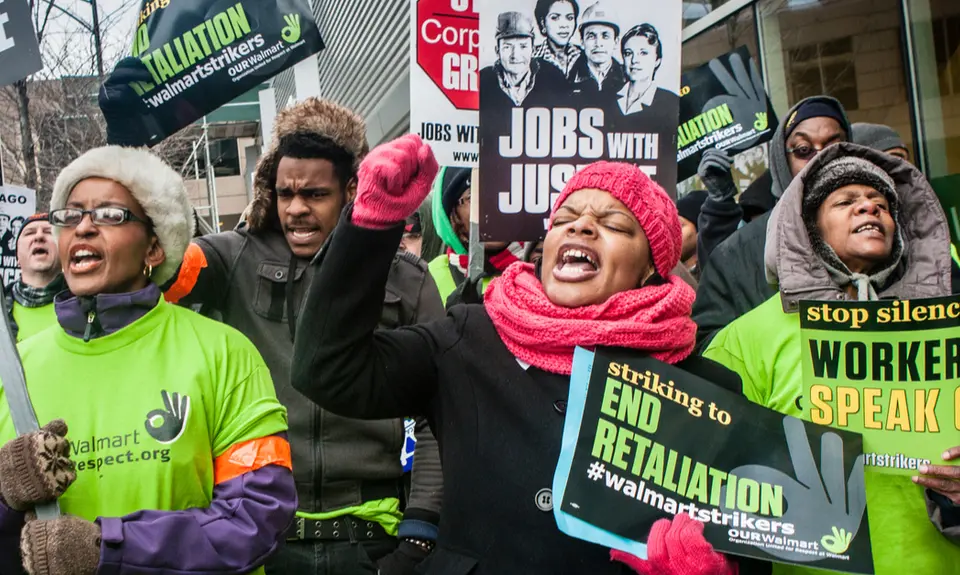On Monday the Supreme Court will hear arguments in Janus v. AFSCME, an enormously important case that threatens to undercut the ability of working people to come together in unions.
A new analysis from the Economic Policy Institute (EPI) shows that Black women, who account for almost 18 percent of public sector workers, will be disproportionately impacted by the outcome of this case.
As EPI notes:
Black women have traditionally faced a double pay gap—a gender pay gap and a racial wage gap. EPI research has shown that black women are paid only 65 cents of the dollar that their white male counterparts are paid. However, unions help reduce these pay gaps. Working black women in unions are paid 94.9 percent of what their black male counterparts make, while nonunion black women are paid just 91 percent of their counterparts.
If the Supreme Court decides in favor of weakening unions, it will impact the future of democratic decision making in the workplace and the preservation of good, middle-class jobs in public employment that have traditionally benefited African American women who have chosen to serve the public for their careers.
The ability of workers to join together and negotiate for equitable pay has implications across people’s lives and across generations, from housing costs to health care expenses to educational opportunities.
This Saturday, you can help stand up for the right to organize at one of many events across the country on the Working People’s Day of Action.
